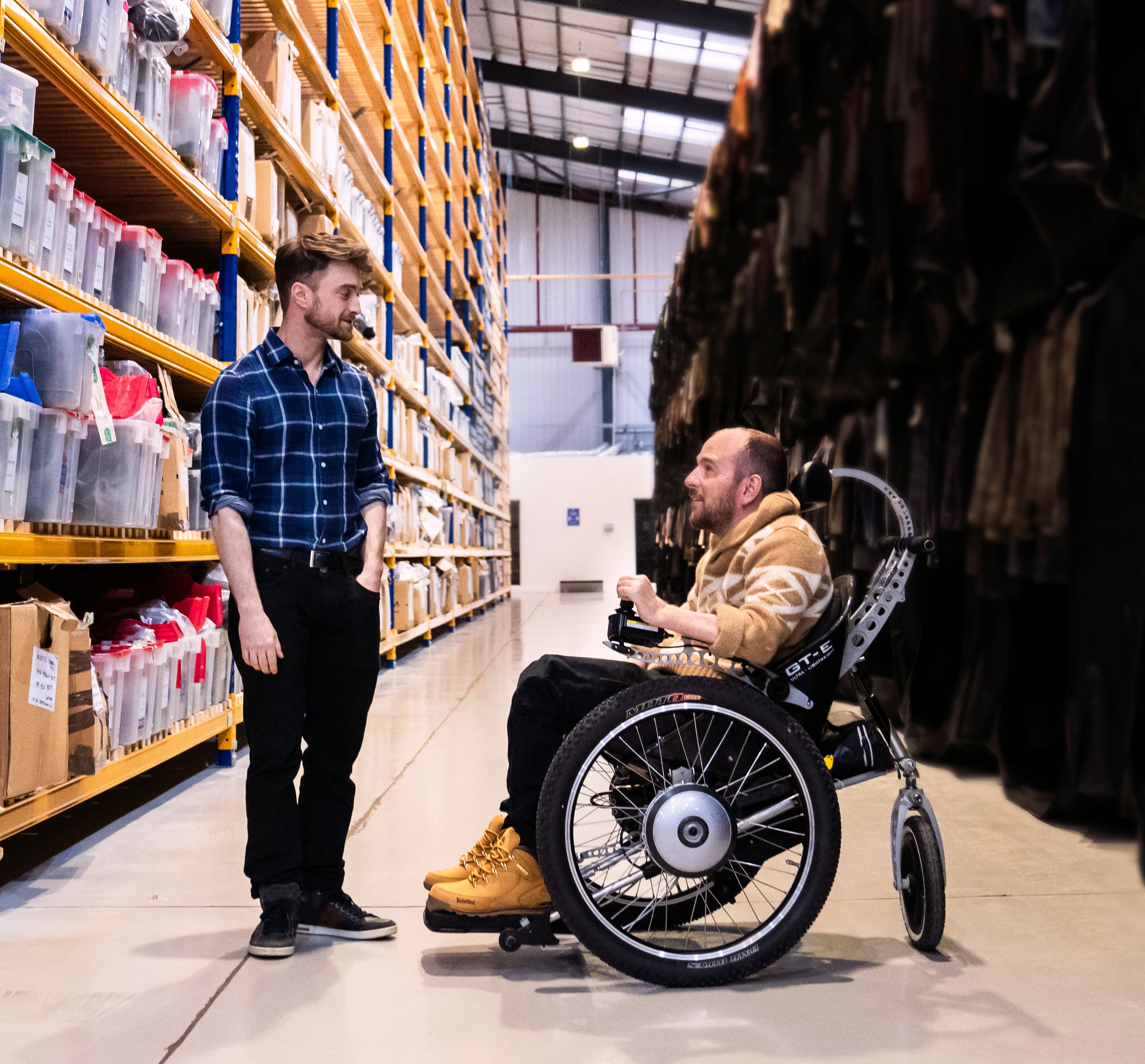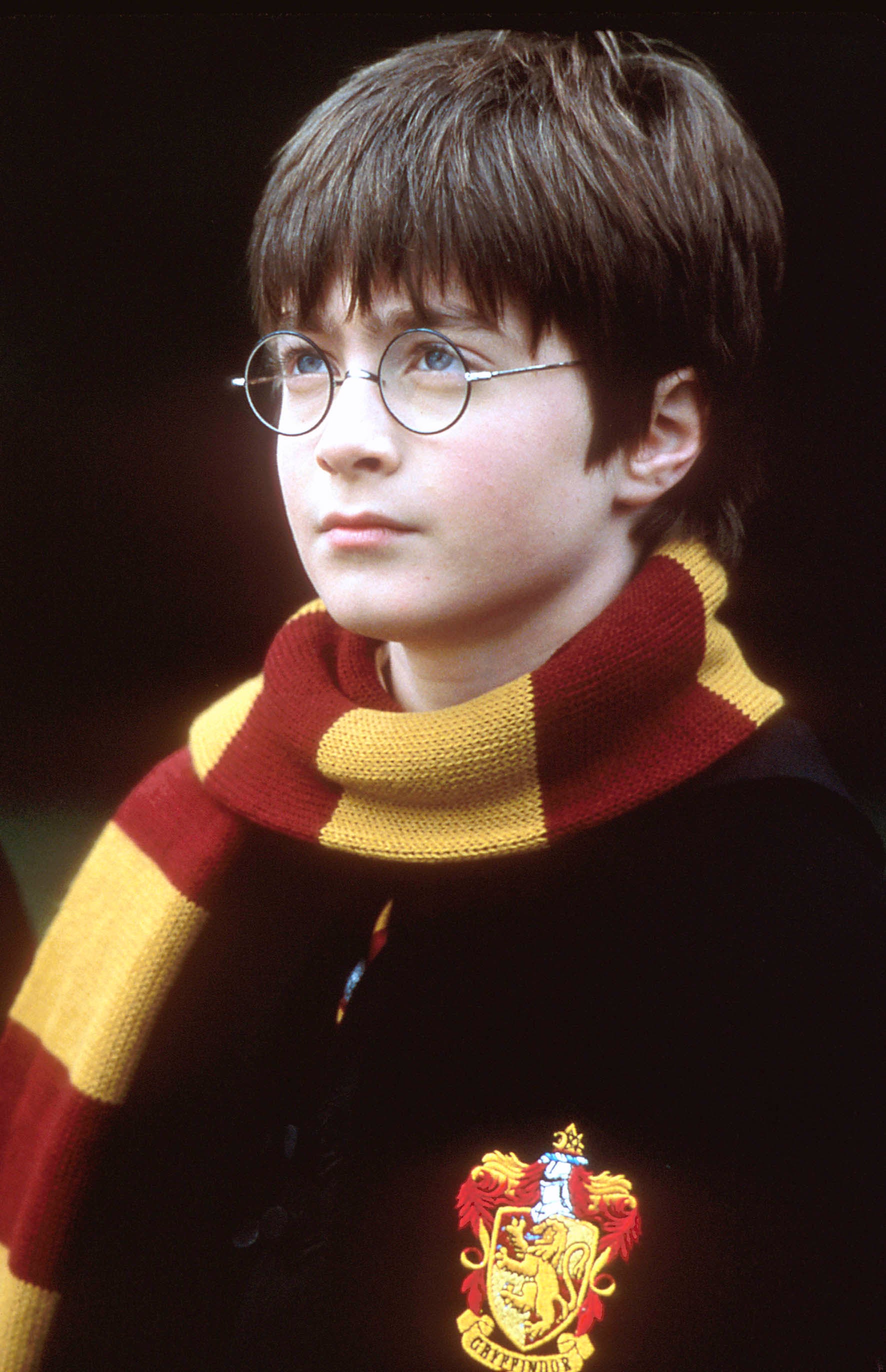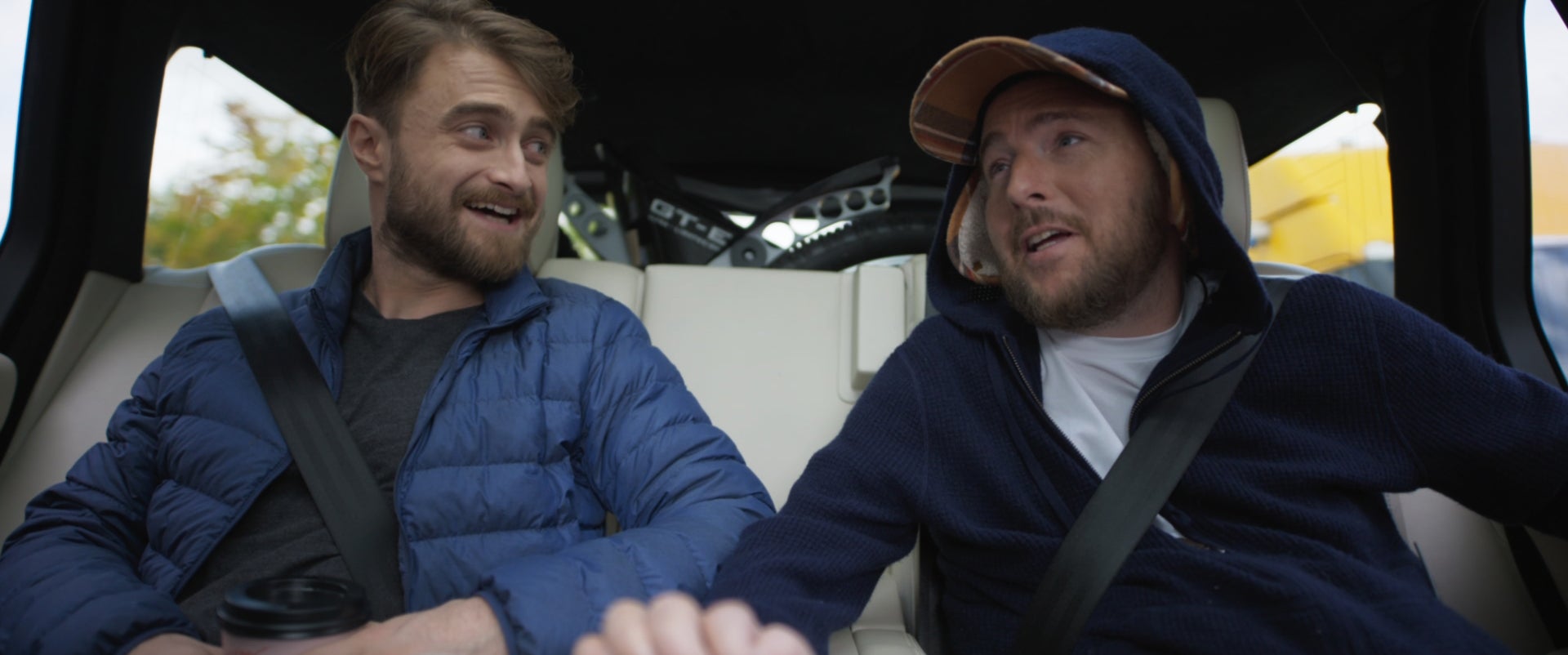Harry Potter stuntman David Holmes says he lives ‘vicariously’ through Daniel Radcliffe after spinal accident
Speaking to Isobel Lewis, Holmes said that he would return to the industry that left him with a broken neck ‘tomorrow’ if his legs worked again


Your support helps us to tell the story
From reproductive rights to climate change to Big Tech, The Independent is on the ground when the story is developing. Whether it's investigating the financials of Elon Musk's pro-Trump PAC or producing our latest documentary, 'The A Word', which shines a light on the American women fighting for reproductive rights, we know how important it is to parse out the facts from the messaging.
At such a critical moment in US history, we need reporters on the ground. Your donation allows us to keep sending journalists to speak to both sides of the story.
The Independent is trusted by Americans across the entire political spectrum. And unlike many other quality news outlets, we choose not to lock Americans out of our reporting and analysis with paywalls. We believe quality journalism should be available to everyone, paid for by those who can afford it.
Your support makes all the difference.Harry Potter stunt performer David Holmes has spoken candidly about living “vicariously” through his former co-star Daniel Radcliffe after an on-set accident left him paralysed from the chest down.
A talented gymnast, Essex-born Holmes was just 17 when he was cast as Radcliffe’s stunt double in the 2001 adaptation of Harry Potter and the Philosopher’s Stone. He would reprise the role in the following five films in the hit fantasy franchise, until a stunt rehearsal during pre-production on Deathly Hallows Part One in 2009 went horrifically wrong. While practicing a jerk-back stunt, Holmes was launched into a wall, and immediately broke his neck.
Now, Holmes, who uses a wheelchair and has limited movement in his arms and fingers, is telling his story in the documentary David Holmes: The Boy Who Lived. It explores the accident, but also celebrates his life before and since, as well as the experiences of the stunt performer and disabled communities. Speaking to The Independent, Holmes explains how Radcliffe – who serves as an executive producer on the film – and his “amazing” career has been a source of great pride for him.
“Every time I see his physicality in films, I can vicariously live through those successes just because I know that those early days it was me that was whipping him into shape and laying the foundation for him,” he says.
Holmes made The Boy Who Lived with director Dan Hartley, the pair having first met on the set of the first Harry Potter film where Hartley was a trainee in the camera department. Holmes’s height meant he often doubled for children throughout his career. He was on the brink of adulthood filming the Philosopher’s Stone, yet a friendship quickly formed between the 17-year-old and Radcliffe, who was only 11.
“I would shut the stunt store’s door and we would play; whether that’s jumping off of portacabins or bouncing on trampolines, doing all the things that an insurance company would have a heart attack over,” Holmes recounts. “It was important that I create an environment where he could just be a kid.” In the documentary, Radcliffe speaks of his total awe of the stunt department, and admits he even considered pursuing a career in it himself.

“He grew from my little brother to become one of my best friends,” Holmes says. He saw something of himself in Radcliffe; after all, the stunt performer was only a kid himself when he started out in the industry, nabbing his first role on 1998’s Lost in Space at the age of 14. He was instantly hooked.
Harry Potter was a life-changing gig for Holmes, who also doubled for Ron, Neville, Malfoy, and even Hermione in the early films (“the first time I appear on the film… I had a wig and a skirt on,” he tells me). The kids were young, but so were the crew members, Hartley recalls. It really did feel like a family growing up together throughout the franchise.
Holmes performed stunts on the first six films, and is credited as a Slytherin quidditch player in the Philosopher’s Stone. Then one day in 2009, weeks before Deathly Hallows Part One would start filming, tragedy struck. The team were testing a scene where Harry is fighting Voldemort’s snake Nagini, and is pushed through a wall. During the previous day’s practice, Holmes had voiced concern that the weight bag being used to jerk him back was too heavy. Still, he insisted he be the one to do the stunt again.

Watch Apple TV+ free for 7 days
New subscribers only. £8.99/mo. after free trial. Plan auto-renews until cancelled

Watch Apple TV+ free for 7 days
New subscribers only. £8.99/mo. after free trial. Plan auto-renews until cancelled
The accident is described in the documentary as a “blur”, his fellow stunt artist Marc Mailley, who ended up replacing Holmes on Harry Potter at his request, saying that he’d “never seen a human being move that first, even to this day”. “I remember hitting the wall, my chest folding into my nose. I was fully conscious throughout the whole thing,” Holmes recalls. He hung in the air, attached to his wires “like a puppet”, and immediately knew that he’d broken his neck.

Watching footage from Holmes’s time in hospital, any viewer would be amazed by his ability to laugh through it all. Radcliffe chokes up as he recalls on camera: “He was already able to have the perspective to look at other people with more serious injuries and go, ‘I’m actually better off than them, I have to look out for them now.’ Which is just the most f***ing ridiculous good quality in a person.”
I ask Holmes about his ability to stay positive in hospital. “You choose to be either a victim or a survivor in all things in life, right?” he says. “I went into hospital and I met real victims, people that were living with their spinal cord injury because they were either victim of a hate crime or terrorist attack. It soon made me own my life choices very, very quickly.”
With the story of his accident making headlines across the world, Holmes became, in his words, something of a “celebrity spinal injury story” on his ward. Radcliffe visited him in hospital immediately, while Tom Felton and even Jack Black, who was in the UK filming Gulliver’s Travels, also came by. With Warner Bros supplying food from their studio canteen (“by the end of my stint, I was feeding a whole spinal ward’s full of people… and the nurses!”), Holmes felt it was his duty to “keep morale up”. Feeling like he’d “made a difference”, in turn, “helped me deal with my own trauma”.
If my legs came back tomorrow, I’d try and go back to work again
“When you live with a spinal cord injury, you’re forced to sit with your problems. It makes you very philosophical and very emotionally intelligent,” he says. Holmes remembers the first time he visited the Harry Potter studio after the accident. He was wearing a neck brace and a feeding tube was in his nose, but wanted to show everyone, even if they’d visited him or not, that “even though my neck was broken, my spirit wasn’t… I still felt them there with me”.
These were moments of respite among what was, understandably, “the hardest time in my life”. He had originally been due to leave hospital after four months, until a life-threatening cyst was discovered on his spine. Holmes needed a lengthy operation, which put him “back to square one of recovery”.
Holmes had thought of himself as “pretty indestructible until I hit the wall that day”, but says gossip between stunt performers meant he was “acutely aware” of the risk involved in the job. Perhaps that’s why, despite his injury, he says he’d return to “the best job in the world” in a heartbeat if given the chance.
“If my legs came back tomorrow, I’d try and go back to work again, honestly,” he says. “I got to be challenged, I got to learn new skills. The life of a stunt performer really is what you can imagine it to be. Sometimes it’s not glamorous, and yes, sometimes you have to accept that there’s risk involved and that injuries can be picked up along the way. But it really is an amazing career.”

Holmes is happy that people are moved by the documentary, although is adamant he doesn’t want to be a “poster boy” for any movement. But his optimism has motivated Hartley too. “Dave’s message of, live in the moment, appreciate what you have, I really took that to heart,” the director says.
What Holmes feels less comfortable with is being described as an “inspiration” – especially by people without disabilities. “If someone in a chair comes up to me, and they say, ‘You’ve inspired me to get out of bed that day,’ then that’s the best compliment anyone could ever give me,” he says. “But an able-bodied person projecting that word to me about myself, sometimes I just look at them and go, hmm, I kind of feel sorry for you. You’re obviously not as tough as I am.”
For “the 90 minutes of me that you see through this film”, however, Holmes is “more than happy to be inspirational”. The documentary, he says, “the story of conquest over real difficult adversity”, and one that should be celebrated. “Nothing’s harder than living with a broken neck, I can assure you,” he adds.
David Holmes: The Boy Who Lived is released on Sky Documentaries and NOW on Saturday 18 November.
Join our commenting forum
Join thought-provoking conversations, follow other Independent readers and see their replies
Comments